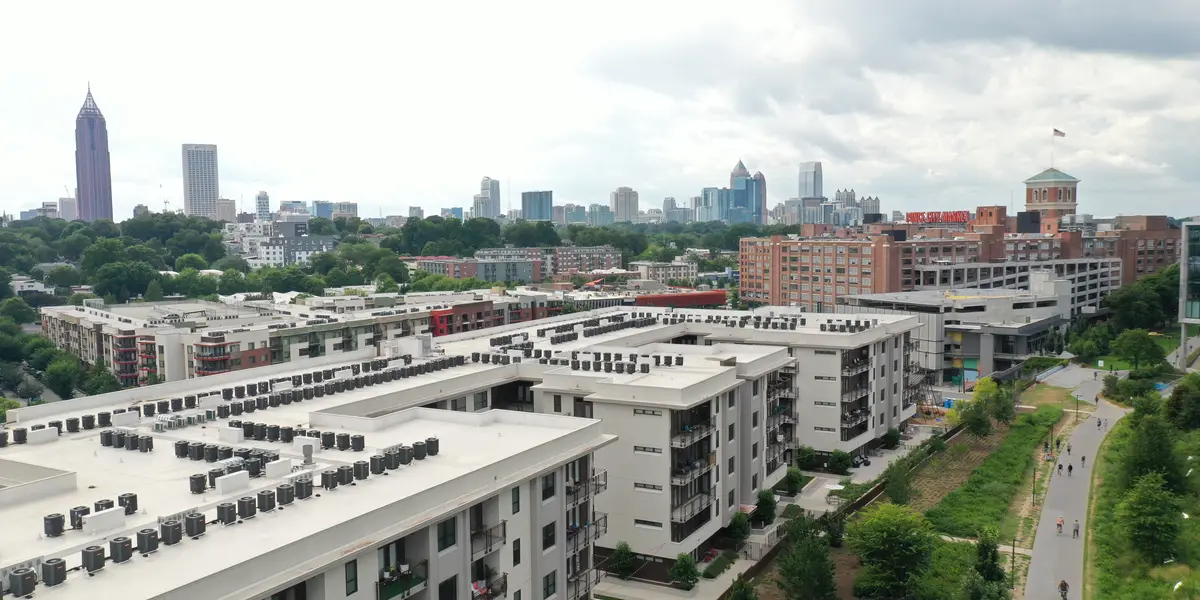Newly-minted Mayor Karen Bass embraced a whole new universe of responsibilities last fall when she became the first woman elected to lead Los Angeles. But her historic win came with an awful catch: overcoming a debilitating homelessness crisis that ensnares an additional 200 people each month — a burgeoning deficit that’s projected to swell from today’s 69,000 unhoused Angelenos to more than 100,000 in the next five years.
Housing watchdogs estimate that Los Angeles County is already half-a-million homes behind in closing the affordable housing gap (see Figure 1).
Bass has declared tackling homelessness priorities number one, two, and three. It’s going to take persistence, creativity, and community partnerships to make a dent. On her first day in office, the Mayor declared a state of emergency on homelessness, a clarion call to expedite relief efforts which the city council approved. She has since issued three executive directives designed to jumpstart wide-ranging housing priorities.
She’s also welcomed a carousel of Biden administration officials to the area, convincing power brokers like outgoing White House domestic policy advisor, Susan Rice, and US Interagency Council on Homelessness chair, Denis McDonough, to name LA as one of five partner cities tasked with advancing President Joe Biden’s sweeping All-In agenda.
Real People, Real Lives, Real Problems
As Bass and her allies diligently work to secure funding — including federal capital, philanthropic aid, and support from nongovernmental organizations — they must keep people on the ground grappling with homelessness at the core of creating solutions.
The harried single moms living paycheck-to-paycheck. The minimum wage earners who CBS News said would need to juggle three full-time jobs just to afford a two-bedroom apartment in LA. Addiction-plagued families exhausted by mental health challenges. As well as the displaced veterans and financially stressed seniors the Los Angeles Homeless Services Authority works to keep from falling through the cracks.
Advocating for the most vulnerable, many of whom are victims of circumstance, is very important.
But ensuring that the person living on the street or sleeping in their car also has a seat at the table is mission critical. Not only are they the ones who can most honestly evaluate the short- and long-term fixes being discussed at City Hall, but they can also holistically speak to the shortcomings of past solutions.
“You can throw as many temporary solutions at it as you want,” Jennifer Shurley, a local who’s lived on and off the streets for years, said. “If there’s no long-term solution to what’s actually causing the homelessness, it’s just a Band-Aid.”
Breaking the Cycle
Bass should take a look at the comprehensive care that LAHSA, the newly expanded and Bass-supported Los Angeles Mission, and Midnight Mission, a 100-plus-year-old nonprofit group also located in LA’s Skid Row area, offer to the homeless community. In addition to providing emergency shelter to those in need, these trusted caregivers plant seeds for recovery through financial counseling, life skills training, job readiness workshops, and other self-improvement programs.
And the private sector could open additional pathways to success — IF Bass gets some much-needed buy-in from Hollywood’s heavy hitters.
If entertainment industry leaders like Amazon, HBO, and Fox — all of which are rumored to be expanding their respective operations via real estate development deals in LA — work existing residents into their next-generation plans, the anticipated boom could be truly transformative.
Convincing incoming businesses to weave preferential hiring opportunities (and not just entry-level gigs, but career-track posts) for area residents, youth workforce development programs for local students, and affordable housing options for new hires into their long-term strategy would give LA’s homeless population a shot at building a real future.
"One of the things I wanted to see was a complete alignment of every level of government, and I'm excited to say that actually happened much quicker than I imagined," Bass said at a press conference outlining how an estimated 4,000 homeless individuals were already better off thanks to the streamlining she's done to date.
Her next challenge is keeping that momentum going — and hopefully building on it — for years to come. If local leaders keep communities at the core of the solutions created, Los Angeles will become a beacon of hope for affordable and sustainable living.
With more than 25 years of legal and environmental experience, Janna Sidley is a core member of the Infrastructure and Public Sector Practices at Ichor Strategies. She is based in Los Angeles.
Public policy consultant and healthcare advocate Ashley Portillo-Baloy supports the Los Angeles-based Community Engagement Team at Ichor Strategies.




